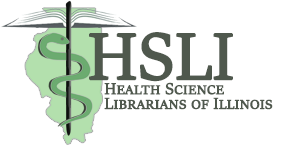(via Brian Lym–Hunter College, City University of New York)
Call for Chapter Proposals
Implementing Excellence in Diversity, Equity, and Inclusion: A Handbook for Academic Libraries
Chapter proposals are requested for an edited volume titled Implementing Excellence in Diversity, Equity, and Inclusion: A Handbook for Academic Libraries, to be published by the Association of College and Research Libraries. Head editors are Brian Lym (Hunter College) and Corliss Lee (University of California, Berkeley), and co-editors are Jonathan Cain (University of Oregon), Tatiana Bryant (Adelphi University), and Kenneth Schlesinger (Lehman College).
We are seeking case studies, qualitative research studies, quantitative research studies, survey research studies, and other research-based solutions that can be implemented in today’s libraries. A more detailed outline appears below.
Proposals, including a 600-800 word abstract, should be submitted https://tinyurl.com/yyefwazv by August 19, 2019. Notification of acceptance will occur by the end of September 2019. Selected authors should expect to submit a full draft of their article no later than January 14, 2020.
Send questions to head editors Brian Lym (blym@hunter.cuny.edu) and Corliss Lee (clee@library.berkeley.edu).
Book Outline
The well-documented lack of diversity in the academic library workforce remains problematic, especially given growing expectations that the overall academic workforce be more representative of the increasingly diverse student bodies at our colleges and universities. That the lack of diversity is especially notable among the professional ranks (librarians, library leadership, and administrators) is indicative of inequity of opportunities for people of color and “minoritized” ethnic groups. Further, remediation of racial and ethnic diversity in the academic library workplace raises broader diversity issues, including individuals with identities outside the gender binary and other individuals who face discrimination due to their sexual orientation, disabilities, religious affiliation, military status, age, or other identities.
Emerging efforts to diversify the academic library workplace are pointedly raising issues of inclusion in libraries where demographic homogeneity has historically prevailed. With Implementing Excellence in Diversity, Equity, and Inclusion, we hope to capture emerging research and practice that demonstrates ways academic libraries and librarians can work with and within their institutions to create a more equitable and representative workforce.
Part 1: Leveraging and Deploying Systemic and Bureaucratic/Structural Solutions Since colleges and universities are hierarchical and complex systems with centralized and bureaucratic controls that can effect or impede transformative change, academic library leaders need to leverage and deploy formal structures and administrative resources to achieve DEI excellence.
Themes:
Recruitment and Hiring
Retention and Advancement
Professional Development and Support
Assessment: Tracking DEI Progress
Part II: Leveraging Collegial Networks, Politics, and Symbols:
Strengthening and Deepening Change for DEI Excellence Acknowledging and deploying collegial networks, leveraging informal and formal political power, and symbolic resources to foster diversity, equity, and inclusion excellence in academic libraries.
Themes:
Navigating Collegial Networks and Normative Expectations Leveraging the Politics of Organizational Behavior (formal and informal power) Reinforcing the Message: Deploying Change Through Deployment of Symbolic Activities
